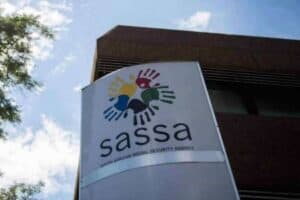The Gauteng department of social development warns people to be on the lookout for human traffickers.

Lorato Modisenyane, of the Gauteng department of social development, writes in a statement:
The spate of human trafficking incidents shows that more children and young adults are prone to human trafficking, in more ways than one.
Trafficking in persons as defined by the United Nations denotes the recruitment, transportation, transfer, harbouring or receipt of persons by means of threat or use of force or other forms of coercion, abduction, fraud, deception and the abuse of power, or of a position of vulnerability or giving or receiving payment or benefits… [and] a person having control over another person for the purpose of exploitation.
The elements of trafficking in persons include but are not limited to recruitment (in the area where a person is staying) transportation, (from one area to another and where transport arrangements are already made on the victim’s behalf) and exploitation for sex work in the form of brothels, massage parlours, strip clubs and sex work on streets, labour (fishery, farms and construction), domestic servitude, forced marriages, removal of organs, illegal adoptions and pornography. In most cases, victims are forced to live out the purpose for which he/she was trafficked.
Those trafficked for labour trade are forced to work many hours of hard physical labour a day, and those trafficked for sex are taken by brothel owners, pimps, massage parlours and strip clubs. Women and children who are in the sex trade are often beaten, raped and forced to take drugs.
Traffickers use various means to lure, capture and exploit their victims. In most cases, victims are promised high-paying or high-profile jobs, with the chance to see and experience places they have only dreamt of.
Traffickers use false promises to lure victims who are desperate to escape their impoverished circumstances, others are simply taken from shopping centres, bus stops and even schools.
According to an August 2008 report, the South African government and partnerships with non-government organisations contributed to some milestones in preparation for the Tip Act.
This includes, among others:
- Development of the Prevention and Combating of Trafficking in Person Act No 7 of 2013
- Ongoing training, education and awareness of government, non-government organisations and churches
- Ongoing public education and engagements to protect them from being potential victims; and causes and consequences of severe trafficking for the victim
- Establishment of national and provincial task teams to deal with this phenomenon
- Protection of suspected victims of trafficking. The Witness Protection Act makes provision for accommodation which is victim friendly
- Rehabilitation programmes for survivors to rebuild self-esteem and to reintegrate into society
- Provision for effective law enforcement measures such as specialised sexual offences court in all the provinces.
– Caxton News Service
Support Local Journalism
Add The Citizen as a Preferred Source on Google and follow us on Google News to see more of our trusted reporting in Google News and Top Stories.








